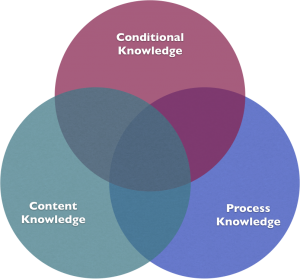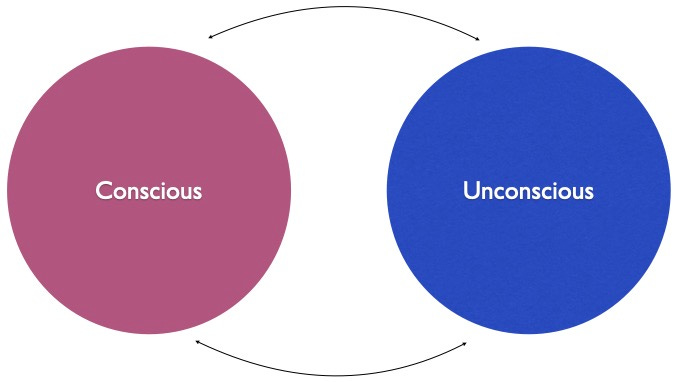START HERE: Maps of Knowledge 🗺️ ⭕️
Why we need mental maps and the grand plan for Frontiers of Psychotherapist Development (FPD) and our weekly newsletter, Frontiers Friday. FF#138.
If someone needs directions, don't give them a globe. It'll merely waste their time.
But if someone needs to understand the way things are, don't give them a map.
They don't need directions, they need to see the big picture.
~ Seth Godin.
I want to provide you some directions on how you can develop as a psychotherapist.
I want to also show you the “big picture,” and how this relates to where I hope Frontiers of Psychotherapist Development and it's newsletter, Frontiers Friday will go.
Here's the plan on what I hope to cover over the course of the coming weeks, months, and probably in the years to come.
Here are some of the past coverages that relates to the Maps of Knowledge:
ADHD (6 Parts)
Existence (6 Parts)
Parenting (6 Parts)
Highly Sensitive Persons (3 Parts)
Trauma (3 Parts)
3 Types of Knowledge
Before we get into The Maps of Knowledge, let me explain how this relates to a concept I’ve discussed before.
I've talked about the value of making a distinction between 3 Types of Knowledge (See also an article in Psychotherapy.net, related to clinical supervision).
To recap, here are the working definitions:
1. Content Knowledge
Content knowledge simply refers to information, instruction and materials for the learner to learn about a given topic.
The acquisition of relevant content knowledge is needed. In fact, when we meet someone that presents with an area that we know little about, it is useful to engage in "just-in-time" learning.1
However, information is not transformation.
Related:
2. Process Knowledge
Process knowledge is the relational ability to engage in the moment-to-moment interaction between two parties.
Content knowledge is focused on “learning to know,” whereas process knowledge is focused on “learning to do.”
The focus is on “learning to know,” whereas process knowledge is focused on “learning to do.”
To understand is easier than to help someone feel understood. To understand belongs to content knowledge. To help someone feel understood, belongs to process knowledge.
In an empathically and emotionally charged conversation, the process of therapy typically moves the conversation forward, either deeper into the realm of a person’s emotional experiences, and/or leads the conversation in a therapeutic direction.
Related:
3. Conditional Knowledge
The third type of knowledge is what defines the best from the rest.
Conditional knowledge is the ability to know how to approach things differently when the situation, context and person you are relating with changes.
“If [x], then [y]” is a crude and simple way to think about conditional knowledge.
If [x] changes, then your [y] changes.
For instance, you might be trauma-informed in your approach (e.g., EMDR, somatic-based) to work with people with complex trauma. But what would you do if someone is over-intellectualising, has a strong tendencies for perfectionism, or more fundamentally, the person doesn't have the same agenda as you have conceived from your perspective (i.e., they have something else that they want work on, or they have a spiritual lens in how they make meaning).2
Leaving it to Tacit Knowledge?
The second and third types of knowledge are more relational than analytical.
Some scholars and argue that such relational knowing should come about more tacitly through clinical experience. This is referred to as tacit knowledge.
While I would agree that tacit knowledge is vital, a useful way to think about this is to see the tacit knowledge as consequential. We do need to develop a "feel" for the work. We also need to develop good taste.
I do believe we still have to push the limit of what we can make the implicit--or tacit--explicit. This is not just a pedagogical issue. It make even be about the perspective with the way we see learning.
It's not that we need to remain hyper-conscious and explicit about what we learn, but rather, we need to develop internal "Maps," in order to navigate the external world of relationships. When we develop these internal representations, or how to navigate in different contexts, we can then begin to embody them without much conscious awareness.
Making conscious what you do at a tacit level matters. Because this is how we can actually make progress. This counteracts what the late K Anders Ericsson calls "counteracting automaticity."
Our Individualised Maps of Knowledge
There is a very refreshing irony here. You can standardize curricula,
but you can’t standardize learning.
~ Sal Khan, The One World Schoolhouse.
Let's take another look at the layout of the Map of Knowledge3 in detail.

The Map is segmented into quadrants, based on the two axes of Content Knowledge (Y), and Process Knowledge (X). Each red dot represents a specific Conditional Knowledge, in a specific area of concern:
i. Bottom Left: Relatively easy in both content and process knowledge
ii. Top Left: Relatively difficult content knowledge, and easy process knowledge required.
iii. Bottom Right: Relatively easy in content knowledge, but difficult in process knowledge in order to engage with clients.
iv. Top Right: Relatively difficult in both content and process knowledge.
It is worth noting, the aim isn't necessarily to try and move everything into the bottom left quadrant.
Besides, you might develop and hone in on your therapeutic skill to work with people who have eating disorders, but it doesn't mean that the process is going to be easy for the clients.
The aim is to develop Maps of Knowledge for each of the domains, based on the context that we work in.
Let's not get into a debate of whether, dealing with perfectionism should be in the Difficult quadrant, or Forgiveness should be in the "Easy Content, Difficult Process" section. Besides, each of us would estimate differently where the red dot each in the diagram.
There are a handful of other things I want to note about the Maps of Knowledge:
Limits of Content Knowledge: Knowing the content of the relevant topic is necessary, but not sufficient.
Limits of Process Knowledge without Content Knowledge: Knowing the process of how to relate to specific conditions is perhaps the hallmark of the therapeutic endeavour. But knowing how to relate, without a clear understanding of what we are dealing with, leaves us handicapped.
Not Diagnosis-Based: Each of the conditions are not necessarily diagnosis-based. The reason is because our understanding of psychiatric diagnoses are based on clusters of symptoms. These clusters are then grouped into a syndrome. For instance, a person who presents with anxiety might actually be dealing with a deep sense of buried shame. Therefore, the therapeutic work has to "follow the pain," and we need to develop a mental representation of how to traverse in towards the healing of shame.
The Evolving Conditions: A client might begin in one area of concern, but as the therapy unfolds, it turns out that it's related to another area. This is more often the norm than the exception. For instance, a person might present with "anxiety issues," but as you work further, you realise that the deeper issue is shame. The key is to make sure that we have developed the necessary scaffolds to structure the journey ahead, while being responsive to the emergent realities and keeping the client engaged in the process... Easy peasy? I don't think so.
Structure as Scaffolds: Pertaining to the last point on structure: We also need to figure out 3 important things. 1. Where is the client, 2. Where does this person want to go, and 3. Why? (See Related: Why Structure Your Sessions?)This is why process knowledge is more than meets the eye. Like a seasoned jazz musician, well-honed facilitative and adaptive skills are required, coupled with a deep knowledge of the craft.
Transfer of Learning: Even when you have the 3 types of knowledge up your sleeves, there is still the issue of "Transfer," that is, are you able to apply what you've learned. This is actually more tricky than it sounds. Researchers in the learning sciences duped the transfer of learning as the holy grail. Although transfer of learning is universally recognised as fundamental to all learning, paradoxically the current evidence suggest that it seldom happens in instructional settings.
The Direction of Frontiers Friday
My hope is that, on each release of Frontiers Friday, I will cover each of the topics in the Maps of Knowledge. I will aim to provide you key resources that I've come across, so that we can all learn from the best in each of these areas.
If you feel like you have something to share in any of these specialised areas, please drop me an email. I'm not an expert in each and every one of these domains, but my wish for each of you in the helping profession, is at least to have the resources.
Ultimately, I would like each of you to develop your over-arching big picture blueprint of how you conduct therapy and your own specific blueprint of how to help specific people that you meet in your practice.
Your Own Blueprint
To end, here’s an experiment:
Park aside 15mins. Pick one area in the Maps of Knowledge that is relevant to your work as a therapist.
Imagine you are trying to teach someone else, map out how you work with a person with that specific area of concern
As you develop your specific blueprint, think in terms of the 3 types of knowledge (Content, Process, and Conditional).
Reflect:
What do you notice about doing this exercise? How easy or difficult is this? If you were to communicate this to someone else, does it make sense?
QUESTION: Is that an area I missed out in the Maps of Knowledge? Let me know in the comments below.
Warm Welcome to New Folks on Frontiers of Psychotherapist Development (FPD)
I'm glad you can join us at the "bleeding edge" of your own frontier.
Feel free to check out the back catalogue of Frontiers of Psychotherapists Development (FPD). You might also want to go into specific topics in the FPD Archives like
And if you want to see past newsletters, the entire archive of more than 130 series are now made available in Substack.
In case you missed it, see the most recent missives
Devotion to the Craft (6 Parts)
Caring for People in Organisations (3 Parts)
Clinical Supervision (3 Parts)
Feedback Informed Treatment (4 Parts)
Unintended Consequences (2 Parts)
Deep Learner (4 Parts)
Going Further with Deep Learner and The Use of Obsidian (6 Parts)
See What You Hear, Hear What You See (4 Parts)
Trauma (3 Parts)
Deliberate Practice (5 Parts)
Empathy (6 Parts)
Therapist Effects (2 Parts)
Client Point of View (4 Parts)
Tech Tools for Therapists (4 Parts)
Emotions (6 Parts)
Sensitivity (3 Parts)
Alliance (6 Parts)
Existence (6 Parts)
Play (4 Parts)
Humour (4 Parts)
Dropouts (4 Parts)
Structuring Sessions (4 Parts)
Common Therapeutic Factors (4 Parts)
Daryl Chow Ph.D. is the author of The First Kiss, co-author of Better Results, and The Write to Recovery, Creating Impact, and the new book The Field Guide to Better Results .
Bots are a great way to gain factual content knowledge, but not good in process knowledge. See Can ChatGPT Replace Psychotherapy?
More examples of conditional knowledge, see https://darylchow.com/frontiers/teach-the-3-types-of-knowledge/
Here’s my previous sketchnote outtakes of the Maps of Knowledge:









I love the maps of knowledge diagram & many of the explanatory images you use in other posts Daryl. A creative mind at work :)
Wow, shortly after I thought about asking you to elaborate on the concept of content knowledge!
Magic!